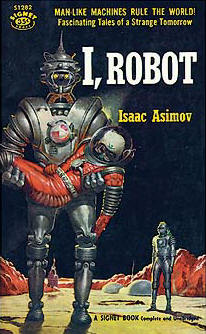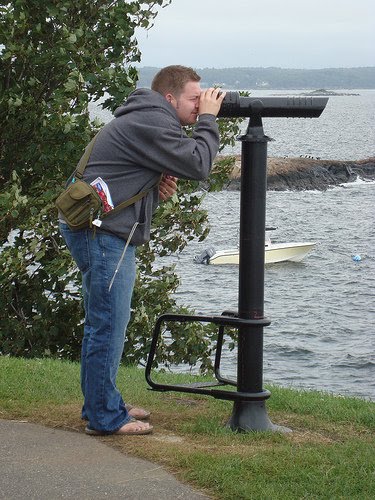Web 2.0 in the Classroom
We had a spirited (though short) discussion about Web 2.0 in the classroom this morning in my C&I Class. This was a fortuitous occurrence given the blog post I read last night on Mr. B-G's English blog about just this. In our discussion, one of my peers was explaining the benefits and usefulness of something like Twitter to get students engaged in the classroom and it's potential uses for things like attendance, discussions, and formative assessments. In his post, Mr. B-G discusses how "Antiquated High School" has a negative view of technology and sees things like iPhones as enemies of the educational process. I'm conflicted as to how I feel about these ideas. As a technology-savvy 28 year old, I feel that I am well-equipped to use new and emerging technologies to help my students in class. But I'm also concerned about shoehorning technology where it doesn't belong, just so we can congratulate ourselves on how forward-thinking we are.
There very well may be useful applications of Twitter in the classroom, but I haven't heard of any. Thoughts? Please, by all means leave comments. Now, don't get the impression that I am a technophobe who is afraid of the 140 character format. I have a Twitter account, I was active for about 9 months, but then it lost it's luster. I failed to see the long term appeal of the format and so I jumped off the micro-blogging bandwagon. And I wasn't just a casual user. I was uploading photos and tweets from our vacation in Boston, I had a 3rd party twitter client on my computer, and I was following over 100 people and had over 100 followers myself. I saw how it could be a cool gadget, but in a life already overloaded with stuff to check and websites to visit, I felt that Twitter was just one more thing vying for my attention. I didn't have time, and it had outlasted it's utility. My personal experience has certainly colored my opinion of twitter as a classroom tool and a platform, but I think I can see how the short format and ease of use can appeal to students.
In class, we also briefly touched on the privacy concerns and the lack of access that some students will certainly face as we integrate technology more and more into our curriculum. Mr. B-G addresses this with his plea for the state and federal government to realign their values to focus on the access to technology that all of our students need to compete on the world stage:
This cannot happen unless the federal and state governments renew their commitment to education, moving away from drill-and-kill instruction and toward constructivist, open classroom environments where teachers facilitate learning though technology, collaboration, and exploration. The days of the teacher as the “sage on the stage” are gone. Our new roles are to serve as guides through an increasingly complex and ever changing digital maze of information.We can’t lead our charges into this new horizon with the tools of the previous century. To remain relevant, school districts must acquire the digital hardware of today’s workplace, train teachers on its use in the classroom, and then give students the freedom to explore, experiment, and harness their skills as navigators, evaluators, and creators of tomorrow’s world.
I think he's definitely on the right track. We can't assign work to students if they don't have access to the resources necessary to complete it. I think one stop-gap measure that I'll have to take is that of offering alternative assignments to those students who either don't have access to certain resources or whose parent's (or the students themselves) have a problem with them participating in something like social networking.
Hopefully, as we move further into the 21st century, more schools will take the pro-active approach like UHigh, Illinois State's lab school, and provide netbooks to all of the students. This way, they know that all students have access to the technology they need (whether they use it or not is another post entirely!). But this costs money, and luckily for our students, netbooks are getting cheaper and cheaper, and soon having a computer won't be a "hopefully", it will be a given.
Labels: 2.0, discussion, technology, twitter
permalink







